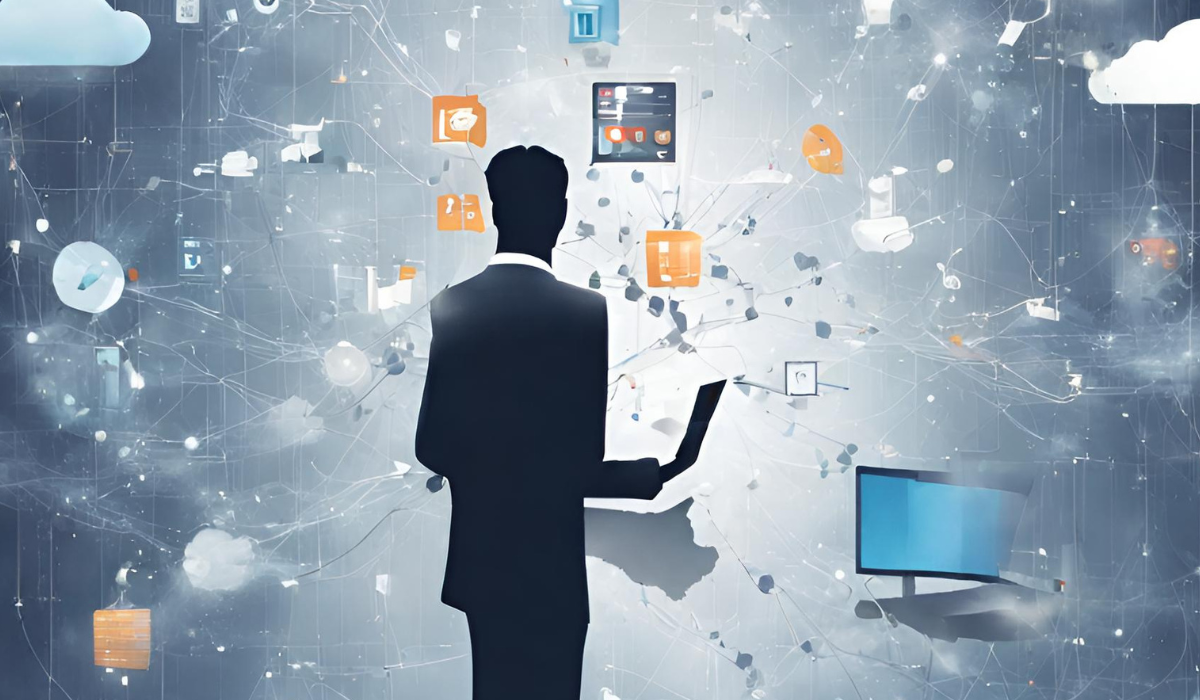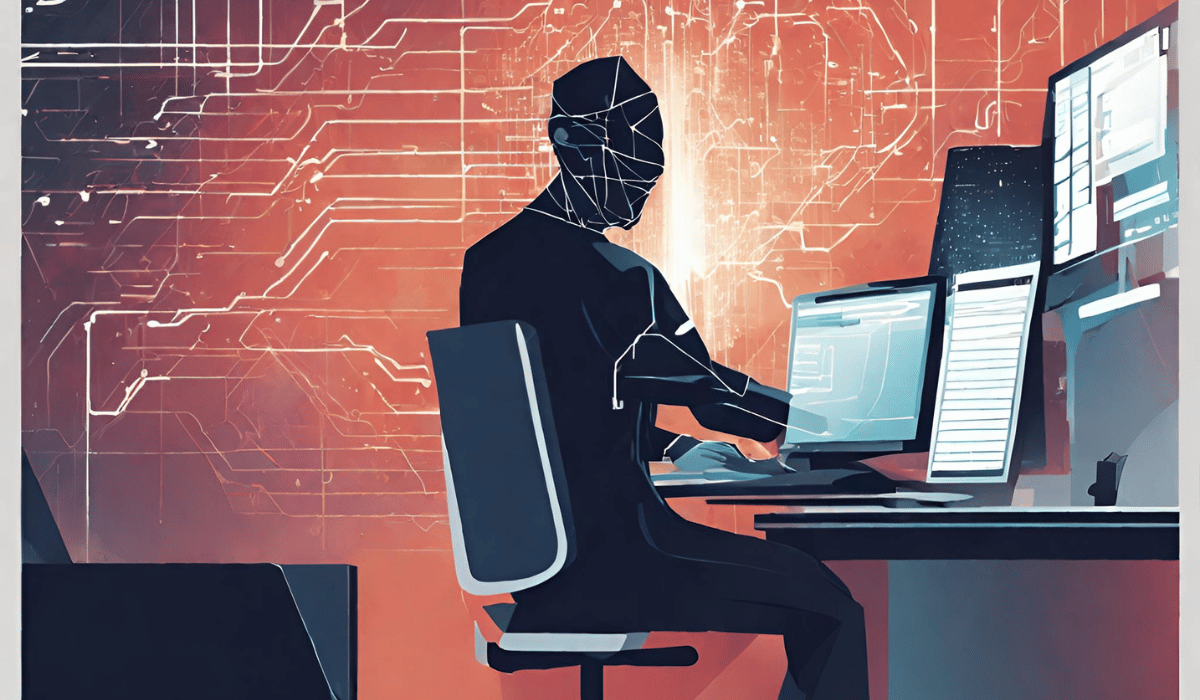A Glimpse Into the Ubiquitous Presence of Big Data

Big data has become an integral part of our daily lives, whether we realize it or not. From the websites we visit and the products we purchase, big data is constantly being collected and analyzed to provide insights and improve experiences. One of the most common examples of big data is targeted advertising. Companies use data such as our browsing history, search queries, and social media activity to create personalized ads that are more likely to resonate with us.
Significance of Privacy in The Digital Age
Privacy in the digital age is of utmost importance as our data is constantly being collected and analyzed by various entities. This data can be used for targeted advertising, but it can also be used for more nefarious purposes such as identity theft or cyberbullying. It is important for individuals to be aware of the data they are sharing and to take steps to protect their privacy online. This includes using strong passwords, avoiding public Wi-Fi networks, and being cautious about the information shared on social media.
Understanding the Right to Privacy
The right to privacy is a fundamental human right that is recognized by many countries and international organizations. It is the right to be free from unwanted intrusion into one’s personal life and affairs, and to have control over the collection, use, and dissemination of one’s personal information. In the digital age, the right to privacy has become increasingly important as more and more personal information is being collected and shared online. This includes information such as browsing history, search queries, and location data.
Defining Privacy And Its Evolution
Privacy is a fundamental human right recognized by many countries and international organizations. It refers to the ability of an individual to control their personal information and to be free from unwanted intrusion into their personal life and affairs. The concept of privacy has evolved, reflecting changes in society and technology. In the past, privacy was primarily concerned with physical spaces and the ability to keep personal information confidential. However, with the rise of the internet and digital technologies, privacy has become increasingly complex.
Legal Foundations of the Right to Privacy
The right to privacy is recognized and protected by various legal frameworks, including international human rights law, constitutional law, and statutory law. At the international level, the Universal Declaration of Human Rights, adopted by the United Nations General Assembly in 1948, recognizes the right to privacy in Article 12. The International Covenant on Civil and Political Rights, also adopted by the United Nations, further elaborates on the right to privacy in Article 17.
Expanding Landscape of Big Data
The expanding use of big data presents new challenges to the protection of privacy. While big data can bring many benefits, such as improved healthcare, transportation, and public safety, it also creates the potential for large-scale surveillance and the misuse of personal information. To address these concerns, many countries have enacted data protection laws, such as the European Union’s General Data Protection Regulation (GDPR) and the California Consumer Privacy Act (CCPA).
Defining Big Data And Its Characteristics
Big data refers to large and complex sets of data that traditional data processing methods are not capable of handling. It is characterized by the 3Vs: volume, velocity, and variety. Volume refers to the massive amount of data generated every day, velocity refers to the speed at which data is being produced and needs to be processed, and variety refers to the different types of data that exist, including structured, semi-structured, and unstructured data.
The Intersection of Privacy And Big Data
The intersection of privacy and big data is a complex and controversial topic. While big data has the potential to provide valuable insights and improve decision-making in various fields, it also raises concerns about privacy and data protection. With the massive amounts of data being collected and analyzed, there is a risk that personal information could be exposed or misused. To address these concerns, organizations need to implement strong data protection measures, such as encryption and access controls, to ensure that data is only accessed by authorized personnel.
Privacy Laws and Regulations
Privacy laws and regulations play a crucial role in protecting individuals’ personal information. These laws vary by country and region, but they generally aim to ensure that organizations collect, use, and disclose personal information transparently and lawfully. Some of the most well-known privacy laws include the European Union’s General Data Protection Regulation (GDPR), California’s Consumer Privacy Act (CCPA), and Canada’s Personal Information Protection and Electronic Documents Act (PIPEDA).
The Role of Big Data in Surveillance
Big data has the potential to be used for surveillance purposes, as it allows for the collection, analysis, and tracking of vast amounts of information about individuals. This can include everything from internet browsing history to location data from mobile devices. While there are certainly legitimate uses for this data (such as for targeted advertising), there are also concerns about how it could be used to violate an individual’s privacy.
Privacy Challenges in the Age of AI and Machine Learning
The increasing use of AI and machine learning also presents privacy challenges. These technologies rely on large amounts of data to train their algorithms, and this data often includes sensitive personal information. There is a risk that this data could be used in ways that individuals did not consent to or that could harm them in some way. Furthermore, AI and machine learning algorithms can sometimes perpetuate existing biases and discrimination.
Data Breaches and Security Risks

Data breaches and security risks are also major privacy concerns. With the growing amount of personal information being collected and stored by companies and organizations, the risk of this information being accessed or stolen by hackers is a real threat. This can lead to financial loss, identity theft, and other serious consequences for individuals. Additionally, there is a risk that governments or other entities could use this information for surveillance or other purposes that infringe on individuals’ privacy rights.
Privacy and Big Data in Healthcare
In the healthcare industry, the use of big data has the potential to greatly improve patient outcomes and drive medical advancements. However, it also raises concerns about patient privacy and data security. With the vast amount of sensitive information collected in healthcare, such as medical history and genetic data, proper measures must be in place to protect this information from unauthorized access or misuse. Additionally, there is a need for transparency and accountability in how this data is collected, used, and shared.
Privacy Advocacy and Public Awareness
Privacy advocacy and public awareness are crucial in ensuring that patient privacy and data security are adequately protected in healthcare. Privacy advocates work to promote privacy rights and ensure that healthcare organizations are held accountable for protecting patient information. They also play a critical role in raising public awareness about the importance of patient privacy and data security. Public awareness campaigns can help educate patients about their privacy rights and the steps they can take to protect their personal information.
Future Trends and Emerging Solutions
As technology continues to advance, healthcare organizations must stay up-to-date with the latest security measures to protect patient information. Some emerging solutions include the use of blockchain technology, which can provide secure and transparent storage of patient data, and artificial intelligence (AI) to detect and prevent data breaches. Another trend is the use of telemedicine, which allows patients to receive medical care remotely. While this can provide greater access to healthcare, it also presents new security challenges that must be addressed.
FAQs
What is The Right To Privacy, And Why is It Important?

The right to privacy is a fundamental human right that protects individuals from unwanted intrusion into their personal lives. It is important because it allows individuals to maintain their autonomy, dignity, and personal integrity. In the context of healthcare, the right to privacy ensures that patients can trust that their personal information will be kept confidential and secure, which is essential for building trust between patients and healthcare providers.
What is Big Data, And How Is It Collected?
Big data refers to large and complex sets of data that can be analyzed to reveal patterns, trends, and associations. It is collected from various sources, including social media, online transactions, sensors, and other digital devices. Big data is typically collected through automated processes that capture and store vast amounts of information in real time. This data is then processed and analyzed using advanced algorithms and machine learning techniques to extract insights that can inform decision-making and drive innovation in various industries, including healthcare.
How Does Big Data Collection Impact Individual Privacy?
The collection of big data can have significant impacts on individual privacy. With the vast amount of information collected, it is possible to create detailed profiles of individuals, including their habits, preferences, and behaviours. This information can be used to target individuals with personalized advertisements, or even to make decisions about their eligibility for certain products or services. Additionally, there is always a risk that the data could be hacked or stolen, potentially exposing sensitive information about individuals.
Are There Any Legal Frameworks Protecting Privacy Rights in The Digital Age?
Yes, several legal frameworks protect privacy rights in the digital age. One of the most well-known is the General Data Protection Regulation (GDPR), which was implemented by the European Union in 2018. The GDPR sets out strict rules for how personal data can be collected, processed, and stored, and gives individuals greater control over their data. In the United States, several laws protect privacy rights, including the Children’s Online Privacy Protection Act (COPPA),
How Can Individuals Protect Their Privacy in The Face of Data Collection?
There are several steps individuals can take to protect their privacy in the face of data collection:
1. Read privacy policies: When using a website or app, take the time to read their privacy policy. This will give you an idea of what data they collect, how they use it, and who they share it with.
2. Use privacy settings: Many websites and apps offer privacy settings that allow you to control what data is collected and how it is used.
What are the Ethical Concerns Surrounding Big Data and Privacy?
The ethical concerns surrounding big data and privacy are numerous. One of the main concerns is the potential for data breaches, which can result in sensitive personal information being exposed to hackers or other malicious actors. Additionally, there is a concern that the collection and use of big data could lead to discrimination against certain groups of people, such as those with certain medical conditions or those from certain socioeconomic backgrounds.
How Does Government Surveillance Affect Privacy Rights?
Government surveillance can have a significant impact on privacy rights. When governments monitor individuals’ communications, movements, and activities, it can lead to a chilling effect on free speech and expression. It can also infringe on the right to privacy, as individuals may feel like they are constantly being watched or monitored. Additionally, government surveillance can lead to the collection and storage of large amounts of personal data, which can be vulnerable to data breaches or misuse.
What Role Do Tech Companies Play In Addressing Privacy Issues?
Tech companies play a crucial role in addressing privacy issues. They have the responsibility to protect their users’ personal information and ensure that their products and services are designed with privacy in mind. This includes implementing strong security measures, providing transparent privacy policies, and giving users control over their data. Tech companies can also push for stronger privacy regulations and advocate for user privacy rights. By prioritizing privacy, tech companies can build trust with their users and help create a safer and more secure online environment.
